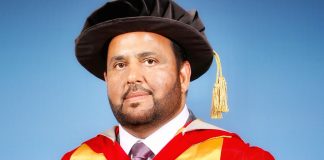I’ve spent much of my life working within our communities listening, supporting, and building bridges across different backgrounds. From living rooms and mosques to youth centres and university halls, I’ve witnessed both the strength and the struggles of our people up close. And there’s one uncomfortable truth we need to face: biradari politics is holding us back.
Biradari, our extended family or clan system, once offered a vital lifeline to early migrants. It provided comfort, solidarity, and practical support during a time of hardship. But over the years, what was once a support network has gradually become a stranglehold, especially when it comes to politics.
Time and again, I’ve seen capable, principled individuals overlooked simply because they don’t belong to the “right” biradari. Local elections have stopped being about service, solutions, or community vision. Instead, they’ve become a numbers game based on family loyalty and clan allegiance. That kind of politics doesn’t build progress, it stifles it.
As a result, we’re often left with councillors and representatives who lack the skills, drive, or understanding needed to deliver meaningful change. Some rarely engage with the public between elections. Others simply echo the views of their inner circles rather than acting in the best interest of everyone. Meanwhile, key issues like housing, education, jobs, youth support, and safety remain unaddressed. The community suffers and the cycle continues.
Political parties are fully aware of how this works. They often approach so-called ‘community elders’ who promise to deliver votes en masse often via postal votes. Selections are then made based on connections, not competence. This isn’t democracy, it’s deal-making behind closed doors. And too many of our people end up with no real say, no real choice, and no real change.
Unfortunately, this mindset has also seeped into our religious spaces. Many mosques are governed by the same biradari power structures. Committee positions are handed out based on loyalty rather than merit. Talented young people are told to “wait their turn.” Women are routinely excluded. Decisions are often influenced more by internal politics than by the needs of the congregation. These are the very places that should reflect unity, spirituality, and community service, yet they, too, are often stuck in the same old patterns.
This environment divides us. It alienates new voices, especially the young and the talented. I’ve met bright, passionate young people ready to lead—but held back because their face doesn’t fit the mould. I’ve met highly capable women with more qualifications and experience than the men in the room, yet still overlooked. This isn’t just unfair. It’s a waste of potential. And it’s costing us dearly.
Let me be clear: we need to bring in people who can actually do the job, not just those from a certain biradari or caste. We need leaders who are competent, accountable, and genuinely committed to the whole community, not just their loyal few.
The consequences of poor leadership are all around us. Our neighbourhoods continue to face deep-rooted challenges, poverty, poor infrastructure, limited opportunities. Weak leadership cannot stand up for us. It cannot secure resources, influence policy, or inspire change. If we want better outcomes, we must make better choices.
I understand the pressure to support someone familiar, someone from your own background or circle. But our vote is not a family favour. It’s our responsibility. It’s how we build the future. It’s how we ensure our children don’t inherit the same frustrations we face today.
We must move from loyalty politics to purpose-driven politics. Let’s create space for younger leaders, for women, for fresh ideas. Let’s back those who have a track record of service, not just surname recognition. Let’s raise our expectations and hold people to account.
I say all this not out of anger, but out of love for the community I’ve spent my life working in. I believe in our potential. I believe we deserve better. And I believe that change starts with each of us making courageous, conscious choices.
If we keep voting the same way, we’ll keep getting the same results. And honestly, that’s no longer good enough.
Disclaimer: The views expressed in this article are entirely my own, based on years of community work and personal reflection. This is not an attack on any individual, family, or group. Rather, it is a call for open and honest dialogue about a systemic issue that affects us all. My goal is to encourage progress, unity, and better representation for every member of our community.




